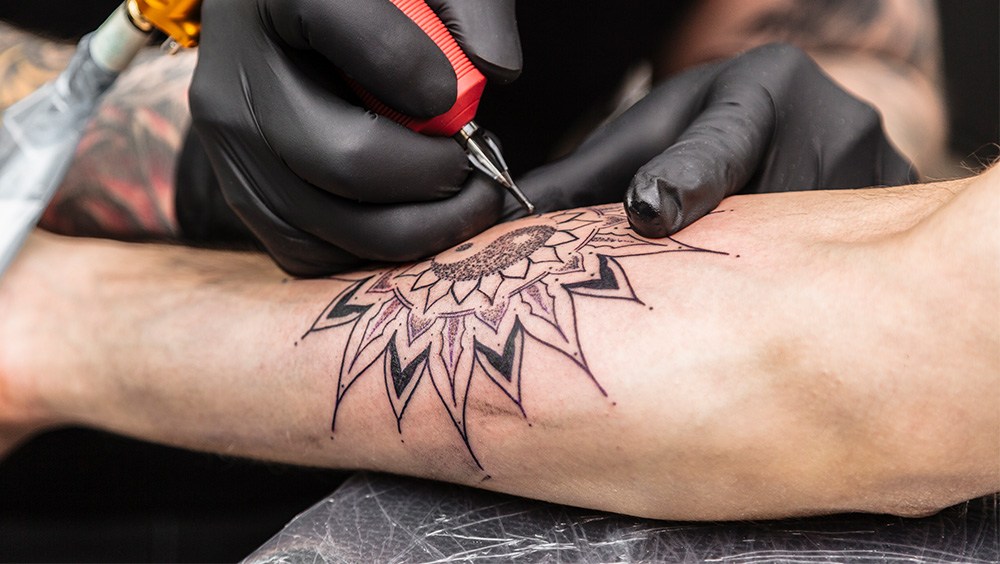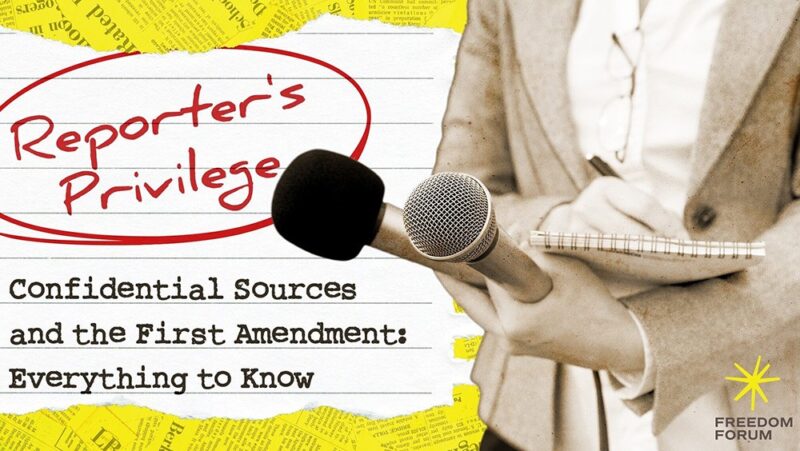Ink Expression: Tattoos and Free Speech

Permanently inking the skin is a form of body art that has been practiced for thousands of years. Sometimes tattoos are linked to religious beliefs, a person’s status or simply the recipient’s preferences.
How tattoos are perceived has changed over human history, from status symbols to indicators of low or high class. According to the Pew Research Center, as of July 2023, nearly one-third of Americans had one or more tattoos.
But are tattoos free speech protected by the First Amendment?
Are tattoos free speech?
Likely, yes.
In the 1980s, many courts said that tattoos were not free speech and could be banned. Courts also regularly upheld restrictions on tattoo parlors — especially in certain locations — despite arguments that tattooing is an act of artistic expression.
However, since the 2010s, more courts have said tattoos are free speech. While the Supreme Court has never ruled on whether tattoos are free speech, by 2006, all 50 states had ended bans on tattooing.
Tattoos are a form of artistic expression that communicates a message, like a slogan or image on a T-shirt. They’re just more permanent.
That means the government likely could not throw you in jail only because you have a tattoo – and certainly not only because you have a tattoo that expresses an unpopular or controversial view.
The First Amendment protects expression even if it’s unpopular to some. The words and symbols of tattoos can also have intensely personal meaning, but courts have said that expression doesn’t have to be about political or social issues to be protected.
"A form of speech does not lose First Amendment protection based on the kind of surface it is applied to." — Federal Judge Jay Bybee in Anderson v. City of Hermosa Beach (2010)
Can the government limit tattoos?
Like all First Amendment freedoms, freedom of speech is not unlimited.
Tattoos may be protected expression, but the government could still limit them in some cases.
For example, the government can restrict visible tattoos for government employees. Many police departments prohibit any visible, or potentially offensive, tattoos. In 2015, a court upheld such restrictions among Chicago police because the department said tattoos could cause conflict or mistrust with members of the public and interfere with the ability of police to do their job.
Since 2021, the U.S. military has allowed more tattoos. Service members still cannot have offensive tattoos or tattoos that are too visible in uniform.
Similarly, public schools could in some cases limit tattoos. If a school could show that a tattoo would significantly disrupt the education process, it could require the tattoo to be covered.
Importantly, private employers are not bound by the First Amendment. They can establish dress codes that require tattoos to be covered, as long as they do not discriminate in how they enforce those rules.
Can the government regulate tattooing businesses?
If having tattoos is likely free speech, what about the act and business of tattooing?
With books, owning a book is protected, and so is writing the book, printing the book and selling the book. The government couldn’t unfairly tax paper to force publishers to close; that would be censorship. The same could be said for painting and sculpting. So what about tattooing?
For decades, many courts said no, tattooing is less protected than having tattoos. Courts said it was important to regulate tattooing to protect health and safety and for zoning to keep an element some perceived as “seedy” out of certain areas.
Since the 2010s, more courts have said that both having tattoos and tattooing are protected.
In 2010, a federal court said that tattoos, tattooing and tattoo businesses are all protected by the First Amendment as purely expressive activity. A tattoo artist had sued Hermosa Beach, California, because the city banned all tattoo shops. The court said a city may limit tattooing for some valid reason, like health and safety. But a total ban, the court said, would limit too much speech.
Under this argument, the tattoo artist and the customer are both creating the expression, so they are both protected. However, that protection is not unlimited.
For example, tattoo shops may be required to:
- Register with the health department and follow guidelines about sanitary safety.
- Follow business zoning laws.
But government officials could not decide to deny a tattoo shop a permit simply because they do not personally like tattoos or the types of tattoos the shop may create for customers.
Can tattoo artists decline to do tattoos if they do not agree with the message?
The Supreme Court has not ruled definitively on whether tattoos or tattooing are expression, but it is likely that a tattoo artist’s choice to decline a tattoo would be protected.
The Supreme Court ruled in June 2023 that businesses can decline to create expression if the expression violates the business owners’ beliefs.
In that case, the court said a business owner’s choice to create or decline to create wedding websites would be protected free speech.
In the Hermosa Beach case and other cases, courts have ruled that tattooing is purely expressive activity like designing a wedding website. So a tattoo artist declining to create a tattoo that would violate the artist's beliefs would likely be similarly protected.
Can tattoos be used to identify or prosecute people?
Tattoos have been used to identify people suspected of crimes, and they have been used as evidence in court.
In a trial, it would be up to the court to say if a tattoo could be used as evidence or if it might unfairly bias a jury.
Because the same image can mean different things to different people, tattoos are often not specific enough to be strong evidence of guilt.
In 2024, the Supreme Court will consider the case of a man denied a visa in part over tattoos that he says are religious and that immigration officials said were gang related. However, Freedom Forum First Amendment specialist Kevin Goldberg notes that the court will not be considering First Amendment questions in the case. Instead, it will look at the visa process and whether the rights of the man’s spouse, a U.S. citizen, were violated.
In 2014, the federal government began creation of a tattoo database, which has raised privacy and free speech concerns. Some state law enforcement agencies have similar databases.
They can be used to identify tattoos and potentially match them with a religious, political or gang-related meaning.
According to the Electronic Frontier Foundation, “unlike other forms of biometrics, tattoos are not only a physical feature but a form of expression.”
What are some famous tattoo free speech cases?
Iowa school district’s ban on gang symbols (1997)
In 1992, an Iowa high school student was told that a school policy against gang symbols meant she had to remove or cover a small cross tattoo on her hand.
The student removed the tattoo but sued the school district over the policy.
The court did not consider whether the tattoo was free speech, only whether the district’s policy could be enforced. The court said that the policy was too vague in defining what could be a gang symbol. The district had not done enough to tell students what was allowed or not.
It also noted that the student claimed the tattoo was unrelated to any gangs.
Crime scene tattoo helps convict in fatal shooting (2004)
In 2004, police found a photo of a man with a chest tattoo. The tattoo showed a liquor store where there had been a fatal shooting. It showed some details of the crime scene.
The man, who had not previously been a suspect, was convicted of murder.
Iowa man asked to cover tattoo at public pool (2016)
In 2016, an Iowa man was asked to cover his tattoo of a curse word while at a public pool because other patrons had complained.
He came to an agreement with the city to cover his tattoo with a shirt while he was at the pool but not in the water.
Former football star’s tattoos OK’d as evidence (2017)
In 2017, a judge said that former football star Aaron Hernandez’s tattoos could be used as evidence in a double-murder trial. The images matched some details of the killings. The tattoo artist testified in court.
Hernandez was found not guilty on all except one firearm charge.
Days after the verdict, he died by suicide while in prison for another murder.
Kentucky considers scar tattoo ban (2019)
In 2019, the Kentucky Department for Public Health proposed a ban on tattooing over scars.
The department did not say why it suggested the ban. But tattooing over some skin conditions – though not usually scars – can cause health issues.
After hearing public comments, many of which petitioned against the ban, officials acknowledged that the ban was too broad and did not proceed with the proposal.
Reporter’s Privilege: Protecting the Right to Know
Can a Person’s Name Be Illegal? The How (and Why) Behind Banned Names
Related Content
$30,000 Giving Challenge
Support the Freedom Forum’s First Amendment mission by Dec 31st and double your impact.

